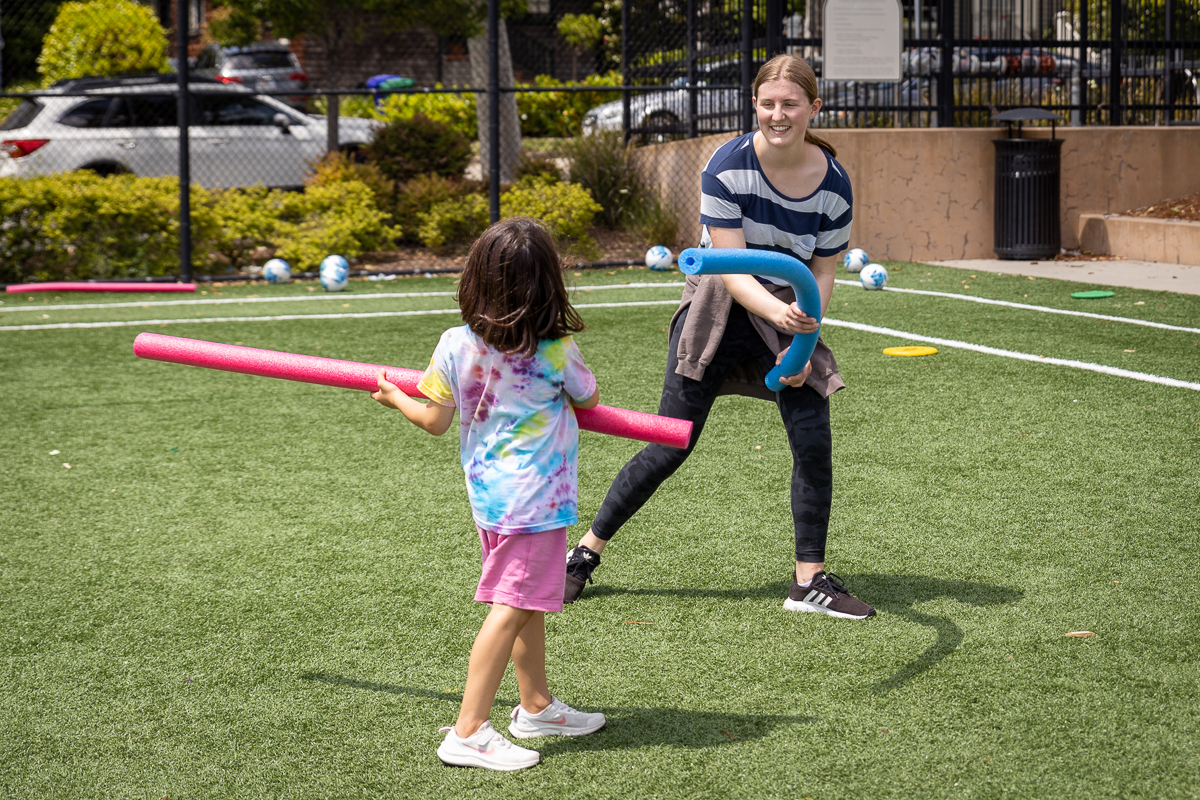From the Piedmont Recreation Department’s weekly newsletter:
The Sidekicks program continues to grow: Staff has been working hard to secure several new classes and clinics to add to PRD’s fall line-up. Choose from sports, art, or social classes that meet weekly or are 1-day clinics. There is truly something for everyone.
If you have have questions about the Sidekicks program, please contact us and we would be happy to discuss your child’s individual needs and what classes would be the best fit.
To view Sidekicks class descriptions and additional information, visit the Fall 2023 Activity Guide (p. 16–19) or visit Community Pass (sort on “Adaptive” under Program Groups)
Volunteer as a Teen Sidekick
Teen Sidekicks are truly committed and enjoy working closely with special needs students, befriending them, sharing lunch and activities, or helping them successfully integrate into mainstream programs.
If you are interested in creating playing an integral role in the growth and overall experience for a child with neurodiverse needs, fill out an application. Sidekicks attend a training and are fully supported by PRD staff. Must be 15+ years old and commit to volunteering for an entire session of an afterschool class. Community service hours are available upon request. Sidekicks may be eligible to receive a letter of recommendation. No experience necessary. Contact Sidekicks for more information.

I just looked up neurodiverse, and the term used to singularly as “special needs”; this may be confusing as special needs conjures one idea but hardly represents the broad range of gifts of neurodiverse kids. The definition below would describe Richard Branson, Steven Spielberg, Charles Schwab, General George Patton and many more brilliant thinkers that just happened to learn differently. Celebrate diversity, define neurodiversity in broader terms.
Definition: What would happen if the world viewed neurodevelopmental differences like ADHD, autism, and learning differences differently? If everyone noticed the strengths that can come from these differences first, instead of the challenges?
That’s the basic idea of neurodiversity — that differences don’t have to only be looked at as weaknesses. They’re not problems that need to be “fixed” or “cured.” They’re simply variations of the human brain.
The neurodiversity view is also personal. Being neurodivergent can help shape identity and how people see themselves and their value in the world. Neurodivergent people experience, interact with, and interpret the world in unique ways. That can sometimes create challenges. But it can also lead to creative problem-solving and new ideas — things that benefit everyone.